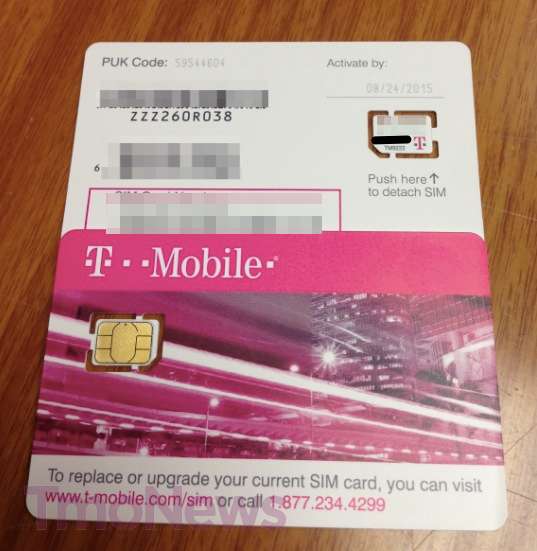Less than one month after Apple's iPhone 5 went on sale through official U.S. partner carriers AT&T, Verizon and Sprint, the nation's fourth-largest wireless company T-Mobile has reportedly taken shipment of nano-SIM cards capable of bringing the hot-selling handset to the telecom's network.
According to T-Mobile blog TmoNews, the iPhone 5-ready nano-SIM cards started showing up at the carrier's stores on Saturday, allowing unlocked versions of the handset to be activated on T-Mobile's HPSA+ network. The appearance of the nano-SIM cards comes as a bit of a surprise, as the first batch of chips were expected to arrive later this month.
While Apple does not sell any iteration of the iPhone to T-Mobile, the newest version of the smartphone supports the telecom's 4G HSPA+ and LTE bandwidths, which are being built out across the country. This means any unlocked AT&T or Verizon iPhone 5 will recognize and operate on T-Mobile's network, including unlocked units sold directly from Apple.
Shortly after launching the handset in September, Apple revealed U.S. pricing for out-of-contract, or factory unlocked, iPhone 5s would be $649, $749 and $849 for the 16GB, 32GB and 64GB versions, respectively. Non-contract units purchased from AT&T and Verizon would carry comparable prices.
Unlike the micro-SIM card used in last year's iPhone 4S, supply of the iPhone 5's nano-SIM card is somewhat strained as Apple's device is the first smartphone in the world to use the newly-minted standard.
In June, the European Telecommunications Standards Institute chose Apple's nano-SIM design to be the official fourth form factor (4FF) SIM card, with the design beating out a rival proposal from RIM and Motorola to become the successor of the micro-SIM.
The nano-SIM is 40 percent smaller than the third-generation micro-SIM architecture, and was supposedly needed to maximize space in the iPhone 5's cramped uni-body chassis.
 Mikey Campbell
Mikey Campbell




-xl-m.jpg)



 William Gallagher
William Gallagher
 Malcolm Owen
Malcolm Owen

 Mike Wuerthele
Mike Wuerthele


 Thomas Sibilly
Thomas Sibilly
 Wesley Hilliard
Wesley Hilliard







21 Comments
Which US iPhone supports T-Mobile USA LTE operating bands?
The ATT version, I think. The Verizon is unlocked and can pick up GSM but it won't do T-Mobile's LTE, when they get it, from what I read. Someone elaborate if I am wrong
Cramped? Poor choice of words...
Is it that the iPhone 5 comes unlocked when you sign up on a contract unlike the iPhone 4 and 4s? I know it is unlocked when you buy it for the full purchase price. I thought there was an article here that mentioned it would be unlocked automatically when you sign up on a contract.
Is it that the iPhone 5 comes unlocked when you sign up on a contract unlike the iPhone 4 and 4s? I know it is unlocked when you buy it for the full purchase price. I thought there was an article here that mentioned it would be unlocked automatically when you sign up on a contract.
The Verizon iPhone 5 is GSM unlocked whether you buy it on-contract or off-contract. The AT&T iPhone 5 is GSM locked to AT&T network. I've read here that you can buy it from Apple Stores at full price if you don't want to sign new contract with AT&T but I called Apple yesterday and they have told me you need to sign a new contract when you buy it from them! I know some people who bought AT&T iPhone 5 off-contract but Apple reps said that's not possible.
I know you can buy it from Verizon (online or at the Verizon stores) unlocked and without contract for full price. The catch is that you will need to activate it, which I believe means $36 activation fee + at least one month of service with them.